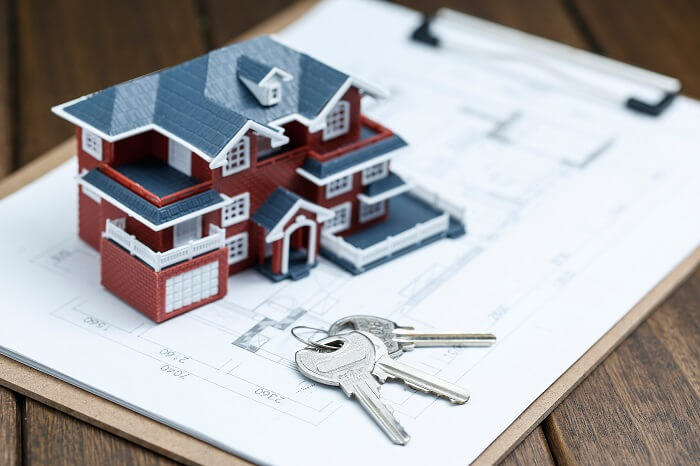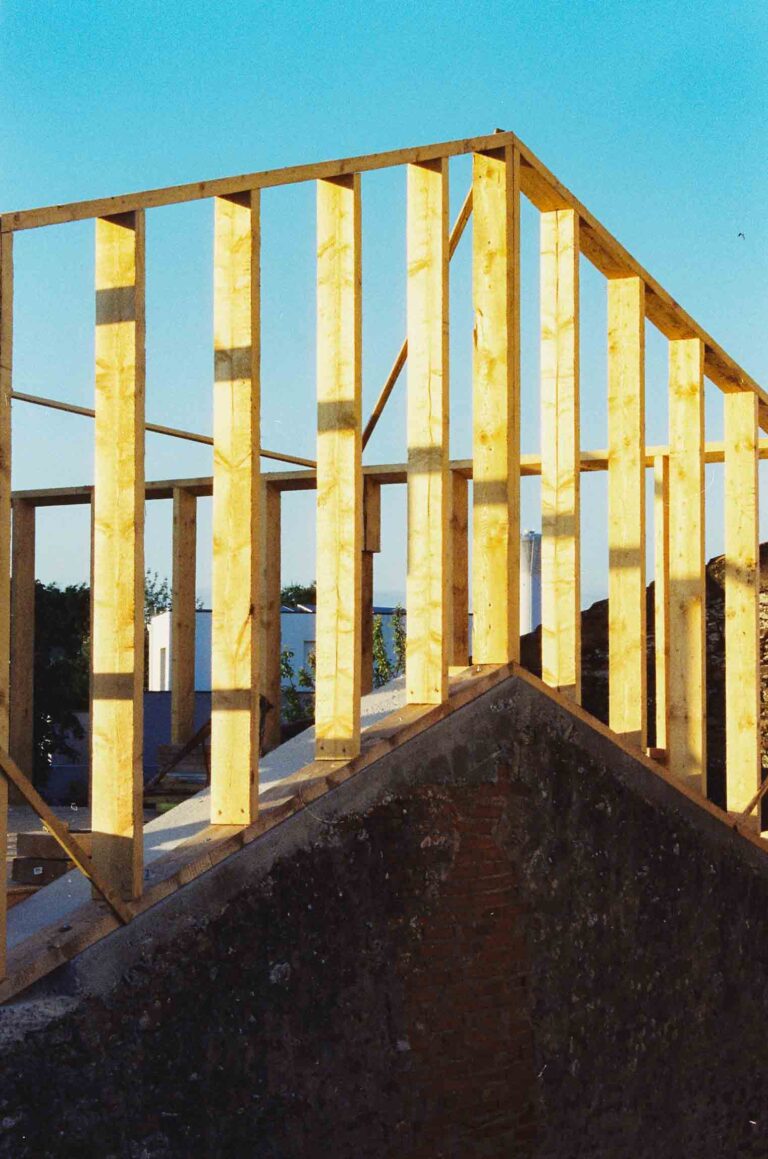How Real Estate Developers Make Money | Learn The Truth Now in Sec

People often ask how real estate developers make money. There are two distinct revenue streams when it comes to real estate income. You can earn passive income by buying and holding. You can earn active income by flipping contracts, making improvements, or adding value in another area, such as real estate development. It may seem scary at first, but it will become less intimidating as you gain experience.
How Real Estate Developers Make Money

Real estate developers make money by selling the property to others at a higher price than what was paid. They can also make money in several other ways, including paying their employees’ salaries and collecting rent from tenants. Usually, there are two types of real estate developers: residential and commercial.
Residential real estate developers build homes that people will live in, while commercial ones construct office buildings or malls that companies run out of. The developer’s job is so important because it provides an average person with housing and creates jobs in the process.
Regardless of the type of residential property being developed, the same basic rules apply when building homes. First, land has to be bought or leased before construction can begin. The landowner will usually want to know what the development will look like before they agree to anything, so the developer will have to come up with a plan.
After that, a team of architects and engineers will design the homes according to the developer’s specifications. Once that’s done, it’ll be time to start building! This process usually takes around 12-18 months, after which the homes are ready for sale.
What about the Commercial Developers?
As for commercial developers, their work is slightly different in that they don’t always own the property they’re developing. Most of the time, they don’t. They find an interested party who owns the property and then strike a deal with them.
This is usually done by negotiating a price for the property and then getting an agreement in writing. The developer will then take care of everything else, such as finding tenants, marketing the space, and even maintaining it. They’ll also get a commission for their work, which can be quite lucrative.
Real estate developers are responsible for creating some of the most important spaces in our lives. Whether it’s a new home or office building, their work impacts us all in one way or another. So the next time you see one of these hardworking individuals, make sure to give them a pat on the back! They deserve it.
When most people consider generating money in real estate, they ask themselves the following questions:
How to Invest in Real Estate if I Have no Money?

You can employ some techniques, including the following:
- Seller financing through lease options.
- Exchanging tangible items such as automobiles, jewelry, etc.
- Assuming the mortgage payments of another person who may be in financial difficulty.
- Engaging a cash-strapped investment partner
- Obtaining a bank loan or a venture capital loan
- Taking out a home equity loan
- Through the use of a peer-to-peer lending network
What is the Procedure for Investing in Real Estate?
Real estate investment is based on the cash flow principle, which requires that income exceeds expenses. This method applies to long-term residential and commercial rentals and short-term vacation rentals.
Is it a good idea to invest in real estate?
Of course, it is. It is one of the sources of wealth generation in our history (along with becoming a business owner).
What is a wholesale real estate transaction?
Wholesaling is similar to selling homes, except that you never obtain residence ownership when you sell real estate contracts.
There are distinct techniques to make genuine money in real estate. Whether you earn a passive or active income is determined by the method you employ.
The Attractiveness of Real Estate Development
It is the ability to raise operating income during the construction of the property and raise financial gains at the time of sale. Like investment, it is usually focused on residential or commercial assets. Most residential construction projects are subdivided into apartment buildings or plots for single-family residences.
Simply put, residential developers make profits by maximizing the genuine value of the land on which they work.
They achieve this by building detached residences and subdividing them into individual homes. They are intimately familiar with local regulations and optimize their ideas and constructions.
Negotiation structures
Every developer is expected to have some skin in the game from their investors in this market. Depending on their track record and the nature of the transaction, it could range from 3% to 25% of the total capital required.
The owner/sponsor makes a profit when the apartment complex is fully built and leased. For simplicity, let’s assume that you sell the building after the lease expires. After the close of escrow, the proceeds of the transaction are distributed according to a capital amortization/profit-sharing system colloquially referred to as a “waterfall.” A waterfall structure is illustrated below:
- Debt repayment (if any);
- 8% preferential rate of return on investor’s money; 3;
- Return of the money to the investment;
- 80% equity partner / 20% promoter split up to an internal rate of return of 20% on the project; and 5.
- Subsequently, 50% / 50%.
Under this framework, if a project costs $10,000,000 and sells for $15,000,000, the developer only has to invest $500,000 and can still make between $1,000,000 and $2,000,000 in profit. The developer’s profits are magnified, as he assumes the risk of repaying the loan, if any, and must go through the process of locating the property, constructing the apartment building, and leasing it.
In addition, many projects can take years to complete, and the developer will not earn a penny until the project is completed and sold. Developers charge several fees (e.g., acquisition, syndication, asset management, property management, and disposition) intended to cover expenses but may instead serve as profit centers.
Development of Residential Projects
Individuals manage only smaller development projects. This might include forming a tiny group of duplex or residential properties with rental revenue as the return on investment. In today’s real estate market, high real estate values or other variables may be a successful step up the investing ladder due to a lack of competitors.
When disposing of duplexes or residential properties with full occupancy, you may anticipate a return on investment of 16 percent to 20 percent in addition to long-term rent.
Houses and apartments and greenfield areas converted to single-family homes are examples of large-scale initiatives. Almost all of these initiatives are funded by an investor group, which may be formed in various ways.
From the viewpoint of the primary developer, the most significant risk may be assumed by a person running a corporate structure such as an LLC. Unless the builder is affluent, outside investors will fund the project.
Most investors will not put money into the operation unless the zoning regulations align with the project and availability permits. As a developer, you’ll be invited to join as an investing partner, which will likely contribute 3% to 5% of the project’s total cost.
After the project, your equity will be the primary source of profit. This needs an individual developer assembling a team of professionals to complete the job (architect, civil engineer, general contractor, real estate agent, etc.)
Build a strong network
Professional real estate developers have a strong network of partners, contractors, suppliers, and other associated specialists, essential in the real estate and construction sectors. As there is always a project in the pipeline, they get preferential treatment and lower prices than the wholesale market.
This keeps costs down and keeps the car running on wheels, resulting in fast construction and delivery times, making the business and individual projects sustainable.
Recognizing a property’s potential
Sometimes the best developers are endowed with a sixth sense to spot a property’s potential. At the very least, they must have an in-depth knowledge of real estate, as they will be dealing with everything from purchasing, zoning, permits, approvals, construction or renovation, and possibly sales. Smart developers know how to profit at every stage of the development process.
Wearing multiple hats
Multitasking also allows developers to earn additional fees and commissions. Many developers also act as property managers, acquiring, promoting, selling, or leasing properties to a third party. In this way, they maintain management responsibilities and monthly payments.
Also, they can supplement their income by charging for construction management and development consulting services, enhancing and adding value to properties.
Most developers use a combination of equity and institutional loans to finance purchases and development. Some companies seek equity partners to invest money in exchange for a share of the profits.
Others have fee-based careers with little or no equity in their initiatives. Developers must retain a skill set that lends itself to the art of rebuilding in today’s ever-changing real estate markets.
Frequently Asked Questions
How much does a real estate developer earn?
Although there is no one-size-fits-all approach to becoming a property developer, some areas of experience do seem to flow into the field. To emphasize, most of the gain goes to the developer. Moreover, the gain a developer makes can be over $1,000,000.
It would help if you recognized that many aspects influence the developer’s profit. One of the biggest determinants is the type of project. Another variable that determines the profit is the amount of money the developer has acquired from a bank in a mortgage loan.
Finally, you should note that a single project may take several years to complete your gold mine.
How much does a real estate investor earn?
It depends on the amount of property he owns. Generally speaking, you can expect an average annual rate of return on real estate investments of between 8 and 12%. If it is a commercial investment, you should expect a rate of return of around 9.5%. When it comes to residential real estate investments, the rate of return is about 10.6%.
Does it take a lot of money to get started as a developer?
Yes, it would help if you had the capital to start real estate development, but you don’t have to have it yourself. Most developers finance their projects with an investor, a personal loan, or a bank.
What experience do you need to become a real estate developer?
There is no single approach to becoming a realty developer, but some sections of expertise easily flow into the field. This includes architecture, construction, law, urban planning, and finance. This is also possible with the appropriate preparation and knowledge.
It would be great if you planned to obtain your real estate license. It is also best to have a bachelor’s degree in realty, business, finance, or a similar field.
What does a real estate developer do?
A real estate developer’s job description includes:
- Finding land for projects
- Renovating existing buildings
- Managing construction details
- Negotiating deals
- Financing projects
- Obtain permits
- Attend public hearings to obtain public approvals
- Oversee projects from start to finish
- Design and execute real estate projects
How real estate services can help you
Your first obligation is to ensure that your commercial development is something tenants need and want because it is unique and different from the competition. That is the key to the success of any commercial real estate development.
When you develop commercial real estate, you can make money by doing something unique and special because forward-thinking tenants and consumers will reward you. Not just by generating financial returns but by creating something you can be proud of by contributing to your client’s quality of life.
How to keep your project costs low
Get financing for low-cost projects as a percentage of the project’s expected value instead of higher-cost ones. Banks will lend money based on the lower two figures: a percentage of the total projected cost and expected value after completion.
Debt repayment is the most difficult financial hurdle you will face when working on a project. Therefore, banks are highly regulated and can be tough lenders when things go wrong.
Bottom line
There is a lot to assimilate and many plates to spin to develop a property and produce a reasonable profit successfully. The key is to gain as much knowledge as possible; knowledge is power and money in the development process.
So roll up your sleeves, be patient and dedicate yourself to learning as much as you can.





